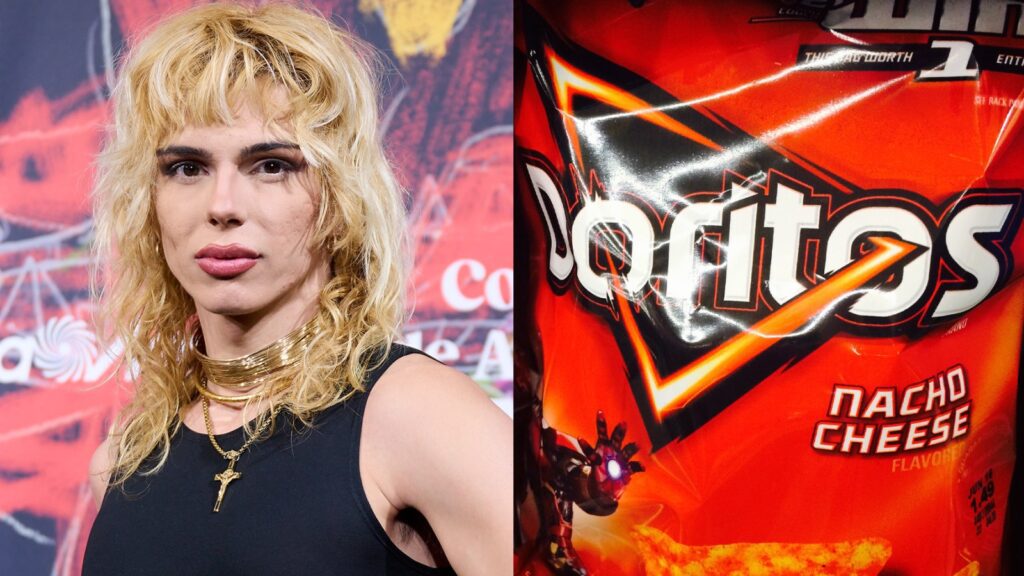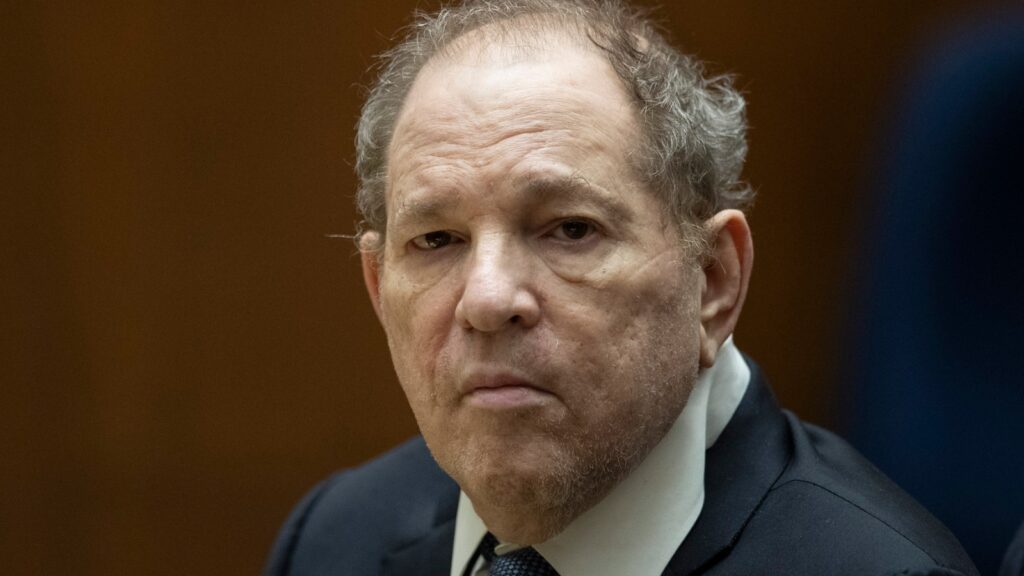The Right Is Trying to Make Bud Light Happen All Over Again With a Doritos Boycott
Ever since right-wing influencers orchestrated a boycott of Anheuser-Busch products last year for collaborating with trans influencer Dylan Mulvaney, they have been foaming at the mouth for a new product to boycott for incredibly stupid, hateful reasons. First, it was Frosted Flakes, due to its mascot posing for a photo with Mulvaney at the Tony Awards (a cultural event beloved by the right due to the absence of LGBTQ people in musical theater). Then, it was Cracker Barrel, because during Pride Month, the restaurant chain had the temerity to acknowledge the existence of gay people on its socials.
Now, the right is going after yet another beloved brand: Doritos. This time, it’s because the Spanish division of the company, which is owned by Pepsi Co., partnered with trans influencer and singer Samantha Hudson for a 50-second branded video on Instagram.
The 24-year-old Hudson has become the center of a right-wing-driven firestorm due to her appearance in the promotional video for a Doritos Spain campaign called Crunch Talks. “This is who Doritos just partnered with to be their brand ambassador in Spain. You know what to do. #BoycottDoritos. Make it trend,” the right-wing account End Wokeness, which has more than two million followers, tweeted on Monday; the far-right account Libs of TikTok also posted a clip of Hudson, urging followers to “Bud Light Doritos.” The campaign has primarily been aggregated by right-wing outlets, with the Daily Caller amplifying it on Monday with a headline inaccurately reading, “Doritos Terrifying New Brand Ambassador Makes Dylan Mulvaney Look Like Sydney Sweeney.” (Hudson does not appear to have been, at any point, a “brand ambassador” for Doritos, appearing in only one now-deleted post on the Doritos Spain Instagram account.)
There are a few reasons as to why Hudson, who did not immediately respond to Rolling Stone‘s request for comment, may not have been an ideal candidate to work with a large corporate brand (none of which, incidentally, have anything to do with her gender presentation). She has been highly critical of the right wing in Spain, and, as a number of far-right influencers have pointed out, Hudson once gave an interview on Spanish TV in which she appeared to advocate for “the abolition of the traditional monogamous nuclear family.” And while that stance is extremely badass, it’s probably not something notoriously controversy-shy corporate brands would necessarily want to be seen endorsing.
More concerningly, Hudson also has a history of making offensive and over-the-line comments on social media, including posts mocking rape victims and, in one tweet when she was 15 years old saying, “Quiero hacer cosas gamberras, como meterme a una niña de 12 años por el ojete,” which loosely translates into “I want to do depraved things, like to get into a 12-year-old girl’s asshole.” Since becoming a celebrity, she has apologized for her comments, referring to her early social media posts as the tweets of an aspiring teen edgelord. “Some tweets that I posted in 2015 are resurfacing and honestly I don’t know what to say, I don’t remember having written such barbarities,” she wrote, according to a Rolling Stone translation of her posts. “At that time I dedicated myself to saying nonsense, the heavier the better, because I thought that ‘dark humor’ was funny.”
In response to a request for comment from Rolling Stone, a Doritos spokesperson said that the Doritos Spain campaign had launched a campaign with Hudson on Sunday, prior to discovering the existence of her previous comments on social media; on Monday morning, after the team became aware of her comments, the post was removed. The spokesperson said that the removal of the campaign and Hudson’s subsequent termination had nothing to do with Hudson’s gender identity, and everything to do with her history of inflammatory comments.
Still, the right-wing-driven campaign against Doritos has primarily focused on Hudson’s gender presentation, with the offensive comments she has made presented as “evidence” of her general sexual deviance. “Doritos facing backlash for hiring TRANS man to be the face of the brand in Spain,” the far-right influencer Oli London posted, referencing her old tweets as an after-thought.
Although the right’s history of campaigning against brands for collaborating with LGBTQ influencers merits extensive mockery, it has, unfortunately, been somewhat effective in bringing down corporations’ bottom lines. Following the controversy over Dylan Mulvaney, Bud Light lost an estimated $395 million in U.S. sales, and Target also suffered a second-quarter slump after conservative activists rallied against its Pride Month merchandise, with the company even receiving bomb threats. The Doritos Spain debacle should, by any reasonable measures, be viewed as an instance of an overseas division of a brand failing to sufficiently vet an influencer’s social media history; instead, it’s being turned into a cri de coeur for a virulently transphobic sector of the right wing that is desperate to find something, anything, to get mad at.





